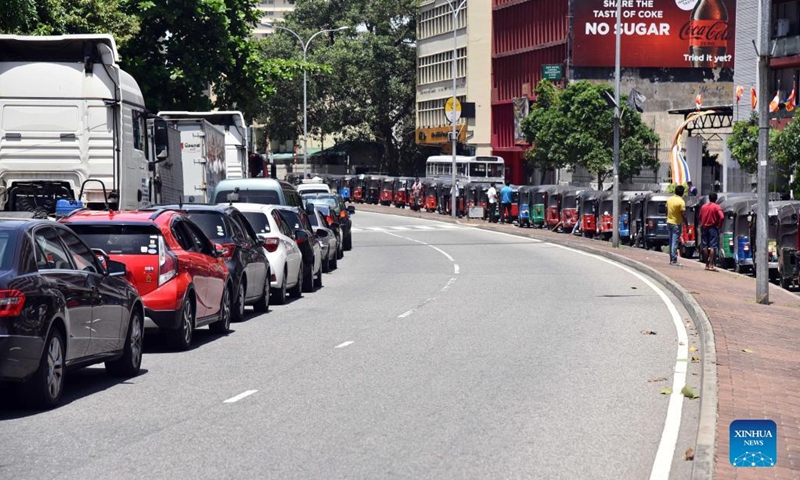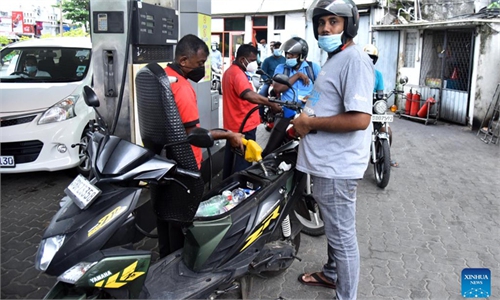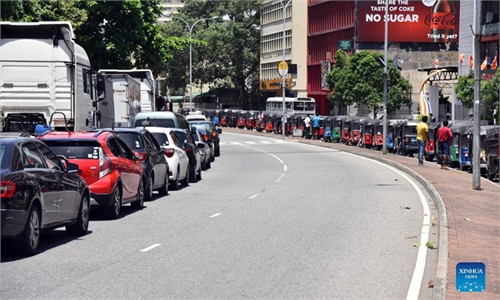Sri Lanka hit by power cuts after key union goes on strike

Vehicles wait in line for a fill-up outside a gas station in Colombo, Sri Lanka, on May 16, 2022. Sri Lankan Minister of Power and Energy Kanchana Wijesekera on Monday assured the public of adequate fuel in the country soon. Sri Lanka has been facing a severe fuel shortage, triggering almost daily power cuts in the past few months.(Photo: Xinhua)
Swathes of Sri Lanka were hit by electricity cuts on Thursday after a power sector union went on strike opposing new government regulations, compounding hardships as the country tackles a crippling economic crisis.About 900 out of around 1,100 engineers of the state-run Ceylon Electricity Board (CEB), Sri Lanka's main power company, went on strike at midnight, stalling operations at eight hydropower plants that generate around 1,000 megawatts of electricity.
The CEB Engineers' Union is opposed to government plans to amend legislation governing the country's power sector, which include removing restrictions on competitive bidding for renewable power projects.
Kanchana Wijesekera, Sri Lanka's power minister, said he was open to make changes to the legislation that is due to be presented to parliament, adding that consumers had the right to cheap and uninterrupted electricity supply.
"If the existing CEB act does not need amendments and has the capability to implement renewable energy projects without delay, why did the CEB deprive many who had requested to do so for years?" Wijesekera said in a tweet.
Sri Lanka's 22 million people are already suffering the country's most serious financial turmoil in seven decades, with severe shortages of fuel, medicines and other essentials amid record inflation and a devaluation of its currency. In a bid to stop the CEB Engineers' Union from striking, Sri Lanka's President Gotabaya Rajapaksa issued a gazette notification late on Wednesday declaring electricity supply as an essential service.
Reuters



